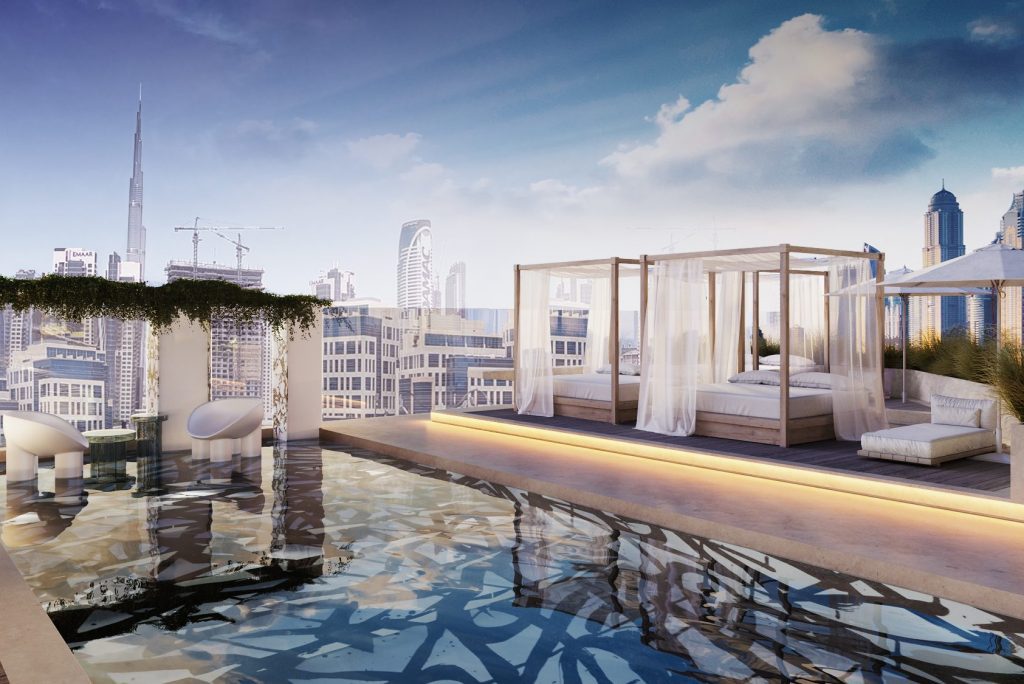Accor Expands in Dubai Despite Middle East's Slowdown on Hotel Development

Skift Take
Another Accor lifestyle hotel brand is heading to the Middle East, the latest in a flurry of activity in the region from the Paris-based hotel company even as overall hotel development there remains nearly at standstill for the past year.
Hyde Hotels, Resorts & Residences plans to open its first hotel outside the U.S. in Dubai, brand leaders announced Monday exclusively to Skift. The 276-room hotel will be located in the city’s Business Bay district near the Burj Khalifa tower and feature many of the food and experiential-focused elements that define lifestyle hotels. The Hyde Dubai Business Bay project is slated to open by the end of this year.
It’s the latest in a string of recent announcements in the Middle East region from Accor, which opened its first SLS property in Dubai earlier this year and recently announced plans to open a second Raffles in the city at the Palm Dubai development.
Join Us at the Skift Hospitality and Marketing Summit on June 16
The company has additional Raffles projects in development in Bahrain and Saudi Arabia. Accor also partnered earlier this year with Faena, which is underway with a Dubai project.

Rendering of the planned Katsuya restaurant at the Hyde Dubai Business Bay (Credit: Hyde Hotels, Resorts & Residences/Accor)
Accor’s construction push comes as the region looks to turn around a seven-quarter decline of hotel development with a greater emphasis on leisure travel.
“You have a big push on leisure in the [United Arab Emirates], Oman, and Saudi Arabia,” Louis Abboud, the deputy head of lifestyle brands at Accor, said in an interview with Skift ahead of the Monday announcement. “All of these markets can have significant growth when it comes to leisure. They have amazing beaches, their governments are behind them, and I think this is why they see major growth ahead on that front.”
Accor’s lifestyle push stems from many of the brands it acquired through its SBE takeover like SLS and Hyde. Both brands are expected to be incorporated into Ennismore, Accor’s planned joint venture with the owner of lifestyle hotel brands like the Hoxton.
Hilton has the most projects in development across the Middle East, with 93 properties in its development pipeline, according to Lodging Econometrics. But Accor has the most hotel rooms in development with 25,882 compared to Hilton’s 25,200.
Accor anticipates even further hotel growth across the region, particularly in Saudi Arabia.
“Saudi Arabia is a market that is really driving and will continue to drive growth in the region,” Abboud said. “Saudi Arabia has made a very bold decision to shift away from their dependency on oil.”
Tourism is one of the leading sectors Saudi Arabia wants to diversify its economy toward as part of its Saudi Vision 2030 plan to move beyond oil. Planned resorts along the Red Sea coast as well as the planned Neom “smart city” are major growth opportunities for hotel brands. Accor plans to emphasize its lifestyle brands in its Saudi Arabian growth strategy, Abboud said without divulging specifics.
This emphasis on leisure travel in the region has the potential to turn around the nearly two-year decline in Middle Eastern hotel development. The Middle East’s hotel development pipeline was down 12 percent at the end of the first quarter, the seventh consecutive quarterly decline for the region.
The pandemic and political tension are major reasons for the decline trend. But Dubai garnered plenty of traveler interest during the pandemic due to its open borders — even if that came at the risk of public health.
A further push toward attracting tourists like the city’s delayed Expo 2020 later this year and Saudi Arabia’s Red Sea plans can offset the development declines.
“[Saudi Arabia is] developing entire smart cities, and they have the means to do it,” Abboud said. “This is a big focus for the future.”
Register Now for the Skift Hospitality and Marketing Summit on June 16




